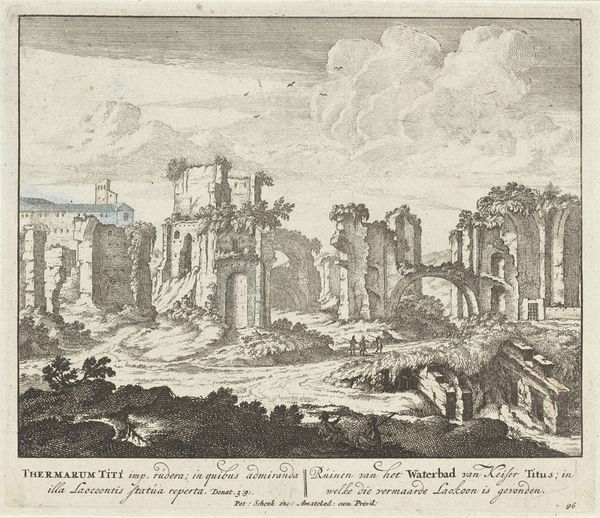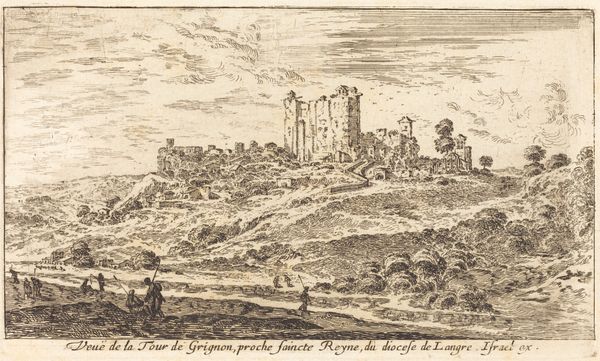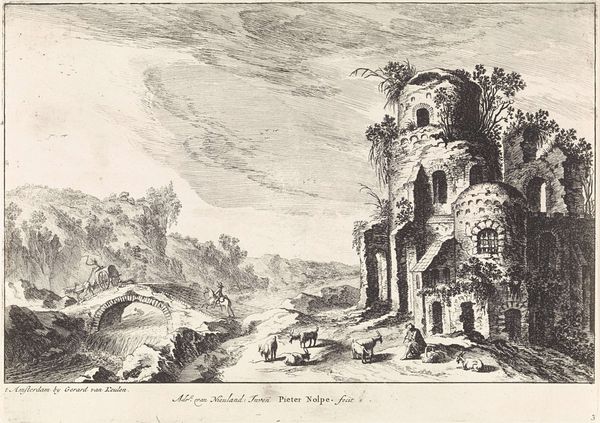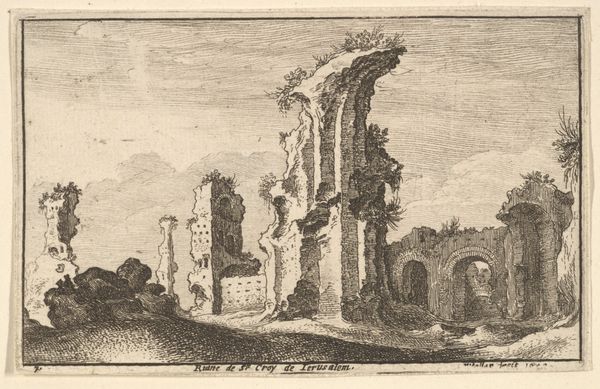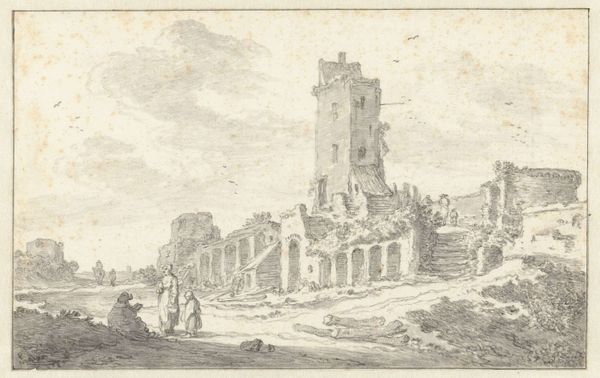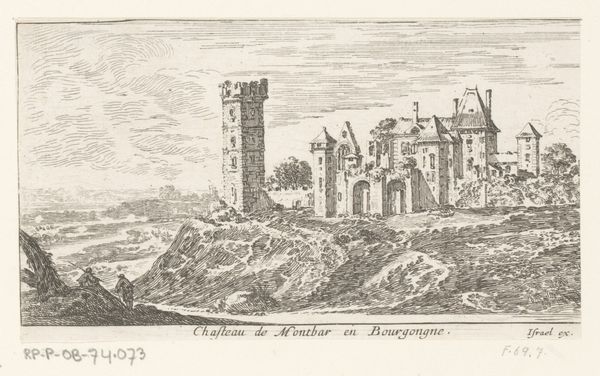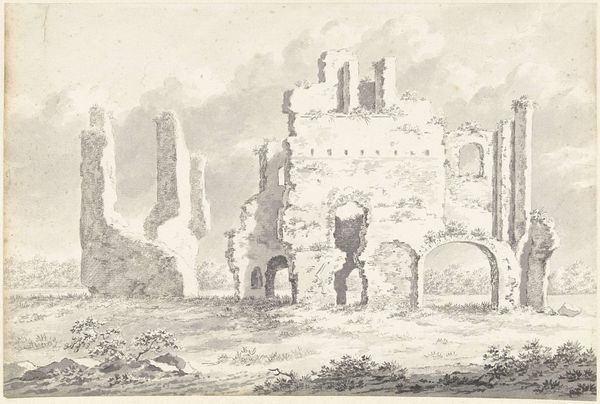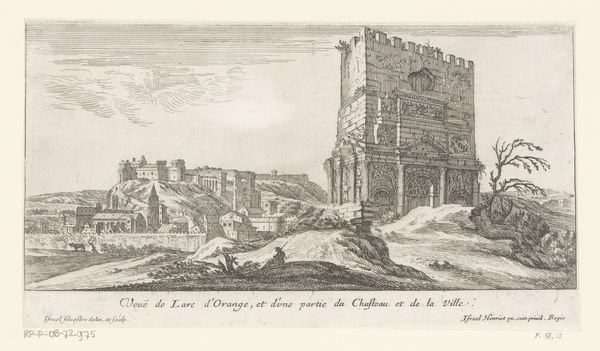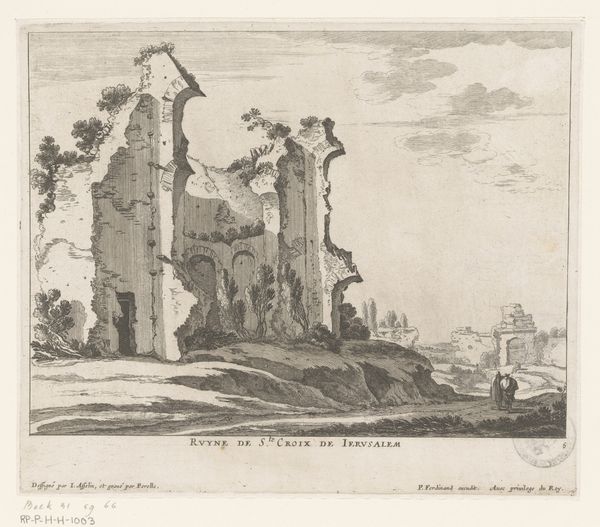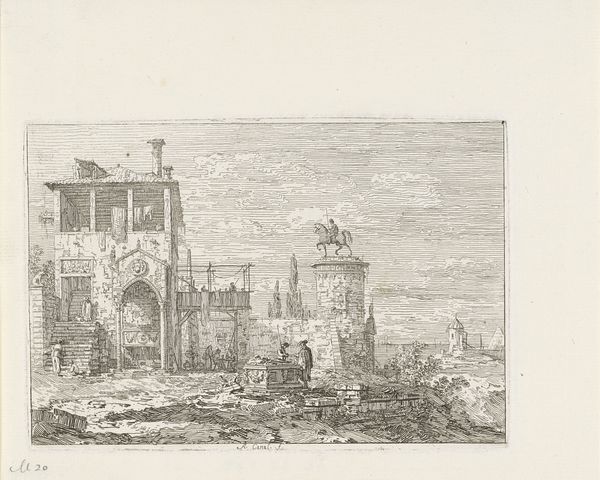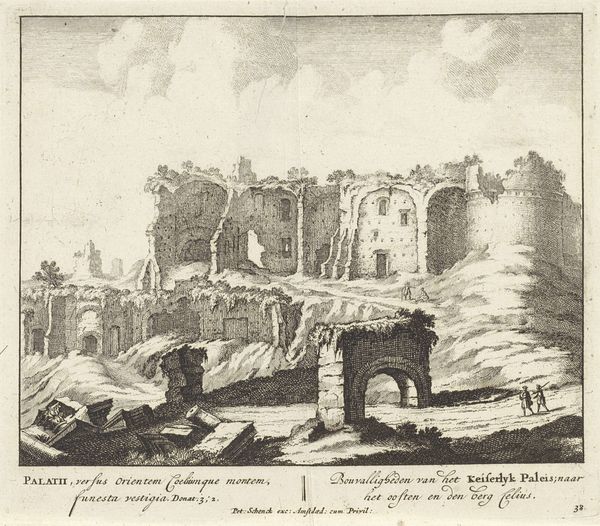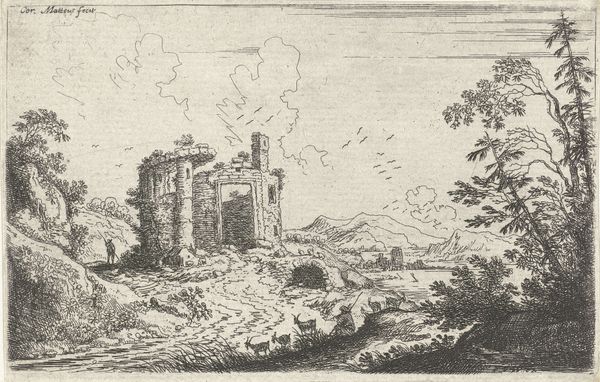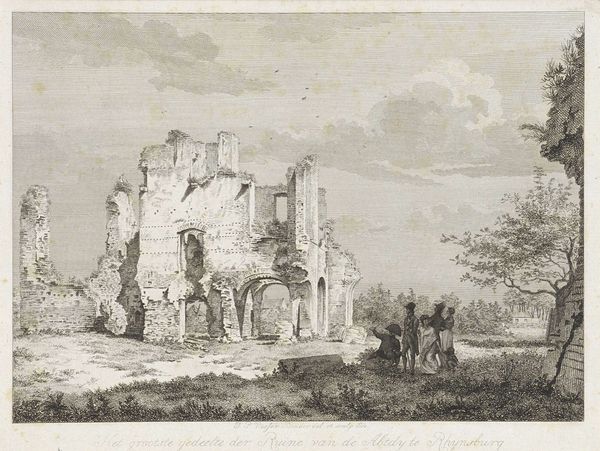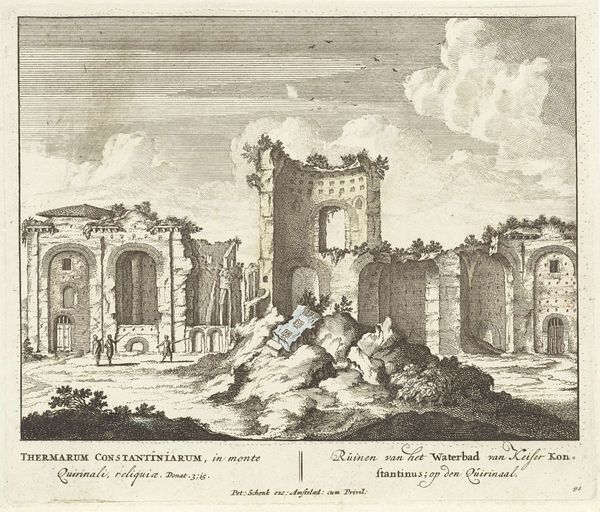
drawing, print, etching
#
drawing
#
baroque
# print
#
etching
#
landscape
#
cityscape
#
history-painting
Dimensions: height 84 mm, width 129 mm
Copyright: Rijks Museum: Open Domain
Editor: This is "Gezicht op ruïne bij Saint-Germain-en-Laye" – or View of a ruin near Saint-Germain-en-Laye – by Israel Silvestre, made sometime between 1631 and 1661. It's an etching, so delicate! I'm struck by the contrast between the ruined structure and the activity of the tiny figures at the bottom. What compositional elements do you find most compelling? Curator: Note the artist's effective use of line to convey texture and form. The density of the hatching varies, creating subtle shifts in light and shadow which articulate the decaying stonework. How do you feel the use of linear perspective shapes our understanding of the subject here? Editor: I notice how the perspective draws my eye toward the center of the ruin. I suppose that exaggerates the feeling of depth, like the ruin is both close and distant at the same time? Curator: Precisely. Silvestre’s choice of perspective amplifies the monumental yet decaying presence of the structure, contrasting it with the diminutiveness of the human figures, who add scale while seemingly oblivious to their setting. What’s your read of the relationship between the sky and architecture? Editor: Well, the etching of the sky seems minimal, just lines suggesting clouds. Does the lack of detail mean something? Is it drawing more attention to the built form below? Curator: Consider how that sparse representation directs attention to the complexity of the ruins. It's a calculated decision that places emphasis on the earthly realm—specifically on the enduring architectural presence within it. The relationship between those realms becomes quite central. Editor: This has been such a fascinating insight. It's easy to overlook the choices made when rendering "realistically," but thinking of the relations here changes that. Curator: Indeed, seeing how such formal choices produce a mood and an attitude underscores the agency the artist exercises and conveys to us.
Comments
No comments
Be the first to comment and join the conversation on the ultimate creative platform.
